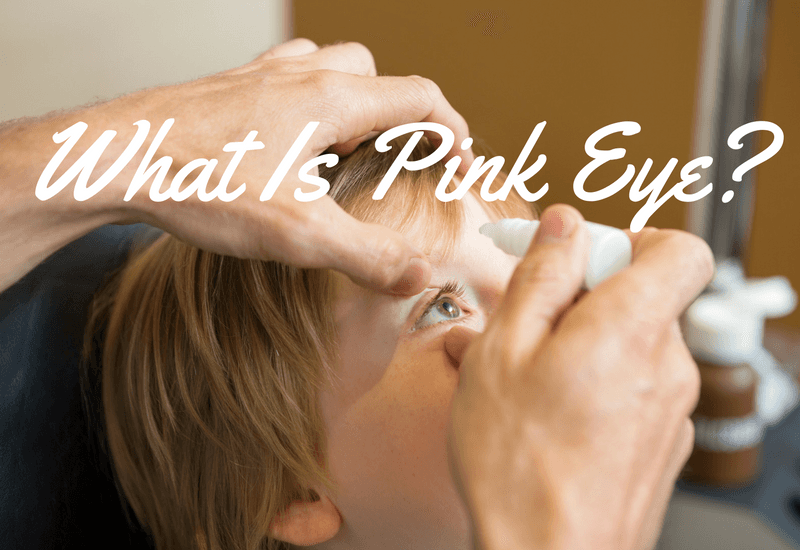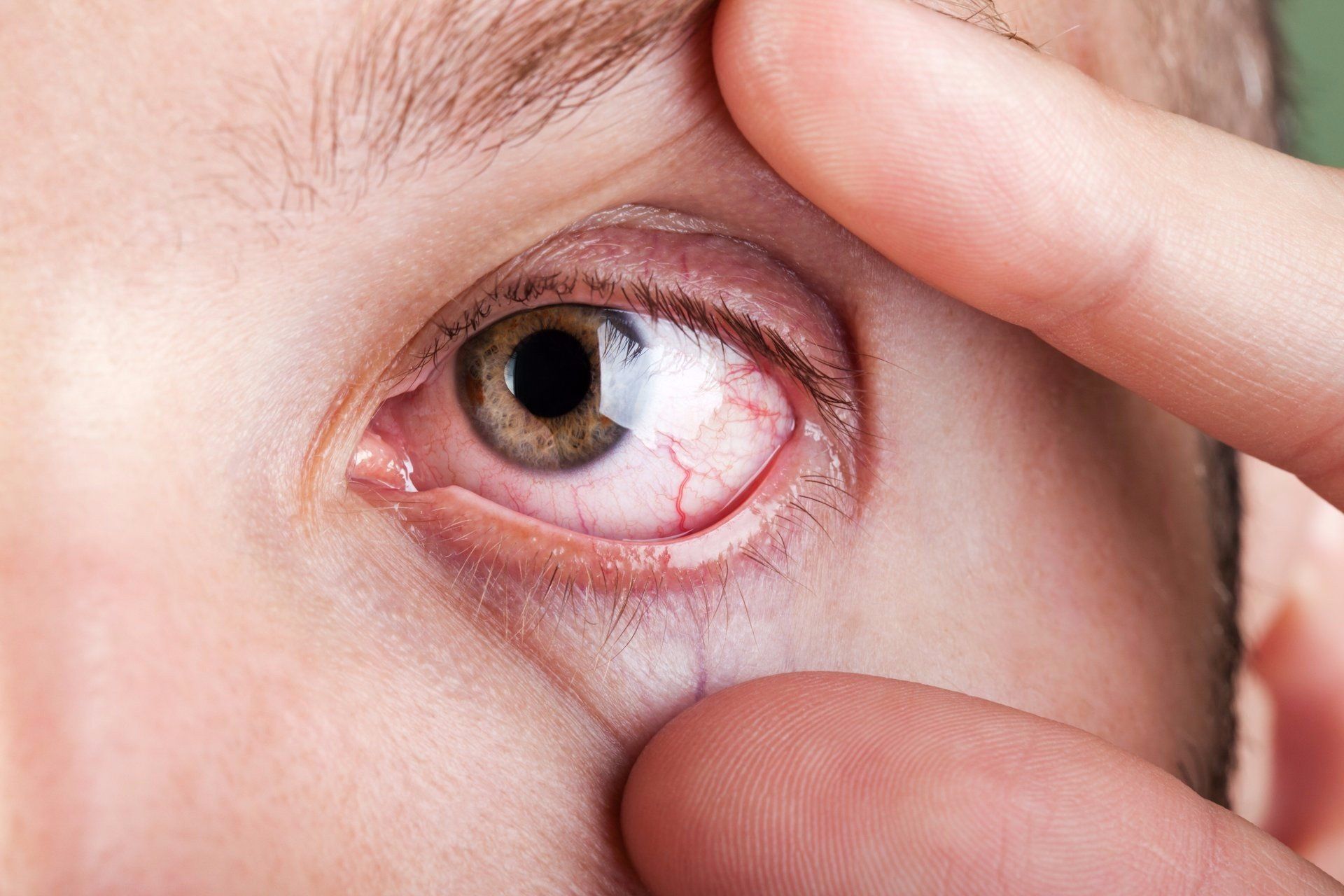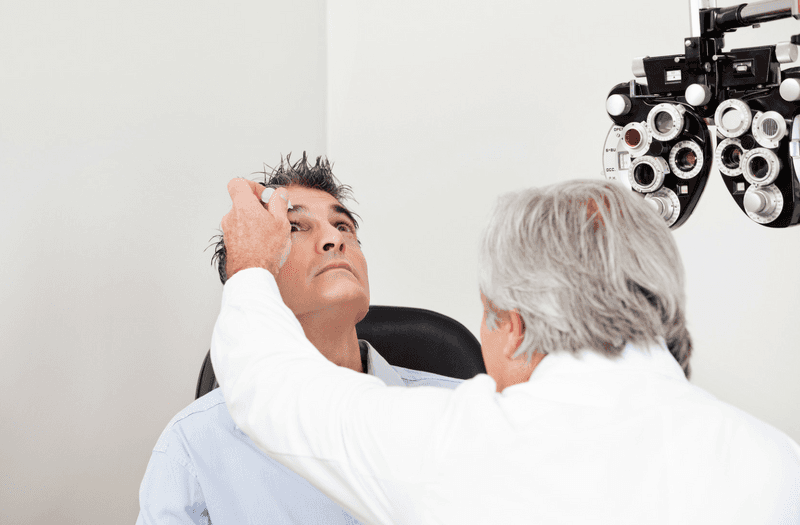What Is Pink Eye And Is It Contagious?
Most of us will have experienced a form of pink eye at least once in our lives - some of the unlucky more than once. Those familiar will know the scenario all too well. You wake up, ready to start your day, to find that your eye not only won’t open but is matted shut and crusty (eww). The dreaded eye funk doesn’t discriminate in its victims either. So what exactly is pink eye? Is pink eye contagious? How do you get it? Keep reading to find out.
What is pink eye?
Conjunctivitis, better known as pink eye, is a fairly common and highly contagious eye infection that causes inflammation of the conjunctiva - the thin clear membrane that lines the inside of your eyelids and the front surface of your eyes. There are three main types of conjunctivitis:
Viral - Viral conjunctivitis is the most prevalent form and is caused by the same virus responsible for the common cold. Unfortunately, since it is caused by a virus, antibiotics will not yield any results in the healing process - instead it has to run its course. Viral pink eye is contagious with the most common symptoms including a red eye and clear watery discharge in one or both eyes.
Bacterial - This type of pink eye is also highly contagious and while it has a lot of similar symptoms to its viral counterpart, unlike viral conjunctivitis it is actually caused by a bacteria. The discharge with bacterial pink eye is typically thicker and more pus-like than that of viral pink eye and can also affect one or both eyes.
Allergic - The only non-contagious form of pink eye is that caused by an allergy or irritant. With this type, the eye is usually red and very itchy. Unlike bacterial or viral conjunctivitis which can be present in only one eye, allergic conjunctivitis will typically always cause symptoms in both.
Symptoms
The symptoms for conjunctivitis and their severity will of course vary by individual as well as by which type it is, but here are several of the most common pink eye symptoms experienced:
- Red eyes
- Watery, mucous, or pus discharge from the eye
- Burning
- Itching
- A sandy or gritty sensation
- Eyes that are matted shut in the mornings
- Sensitivity to light
- Stuffiness or a runny nose
- Swollen lymph nodes at the front of the ears or under the jaw
Make sure to check with your eye doctor if you are experiencing any of these symptoms to properly diagnose and treat what type of conjunctivitis you have and to rule out other eye conditions that share similar symptoms such as dry eyes and corneal ulcers. Also be sure to remove your contact lenses at the first sign of discomfort until your optometrist clears you for contact lens wear. And remember, when in doubt, take them out!
For More information, read Are You Wearing Your Contact Lenses Wrong?
Treatment
The treatment for conjunctivitis will depend on the type. For example, since viral pink eye is caused by a virus, antibiotics would be ineffective in this case. Unfortunately, much like a cold there are things you can do to alleviate the symptoms but the infection itself will just have to run its course. This will usually happen within several days to a week.
With bacterial conjunctivitis, your doctor will likely prescribe an antibiotic ointment or eye drop. As with any course of antibiotics, it is important to make sure you follow the instructions for treatment and do not stop before your doctor has recommended.
Finally, with allergic conjunctivitis, allergy medicines and or allergy drops will help to shorten the duration of symptoms. In the case of allergic conjunctivitis being caused by environmental allergens and not an irritant that has come in contact with the eye, you can usually prevent flare ups by taking your allergy medication at the start of allergy season.
Relief
There are a few things you can do to provide yourself with relief from some of the symptoms of pink eye. Cool compresses will help to alleviate the itching associated with allergic conjunctivitis. You can also try warm compresses in the mornings if your eyes are matted shut to help break apart the dried mucous. Lastly, artificial tears kept in the fridge will lessen itching as well as provide cooling relief and lubrication.
Prevention
Pink eye can be spread a numerous amount of ways including coughing and sneezing and coming in contact with an infected object. Because it is so contagious, it is crucial to follow good hygiene practices if you contract pink eye to keep it from spreading to others and to make sure you don’t re-infect yourself during the healing process. Here are a few tips on keeping it contained and some proactive methods to limit your risk of infection.
- Wash hands frequently. This includes the person infected as well as anyone who might be caring for an infected child.
- Do not share towels or washcloths or reuse the same towel or washcloth if you have pink eye.
- Cover mouth when coughing or sneezing.
- Avoid touching your infected eye(s) as much as possible.
- DO NOT share contact lenses.
- DO NOT share eye makeup such as mascara, eyeliner, or eye shadow.
- Discontinue makeup use while eyes are infected.
- Make sure to discard mascara and eyeliner and disinfect all makeup brushes and eye shadows used while eyes are infected.
- Keep surfaces such as counter-tops, doorknobs, and faucets handles disinfected.
- Consider allergy proofing your home.
- Make sure to follow the proper instructions for contact lens handling, cleaning and storage.
- Wear goggles when swimming.
- Never let contacts come in contact with water this includes showering bathing and swimming.
- Children infected should be kept home until the symptoms of pink eye are no longer present or otherwise released to return by their eye doctor - about 3 to 5 days usually. Also make sure to let your child's school or daycare know so that they make take the proper sanitizing methods.
- Change pillow cases and towels frequently.
Again, be sure to see your eye doctor if you are experiencing any of the above symptoms or you suspect pink eye in yourself or your child to rule out any other potentially sight damaging conditions.
Have you ever had pink eye? Be sure to share this post so that others know how to help stop the spread!






